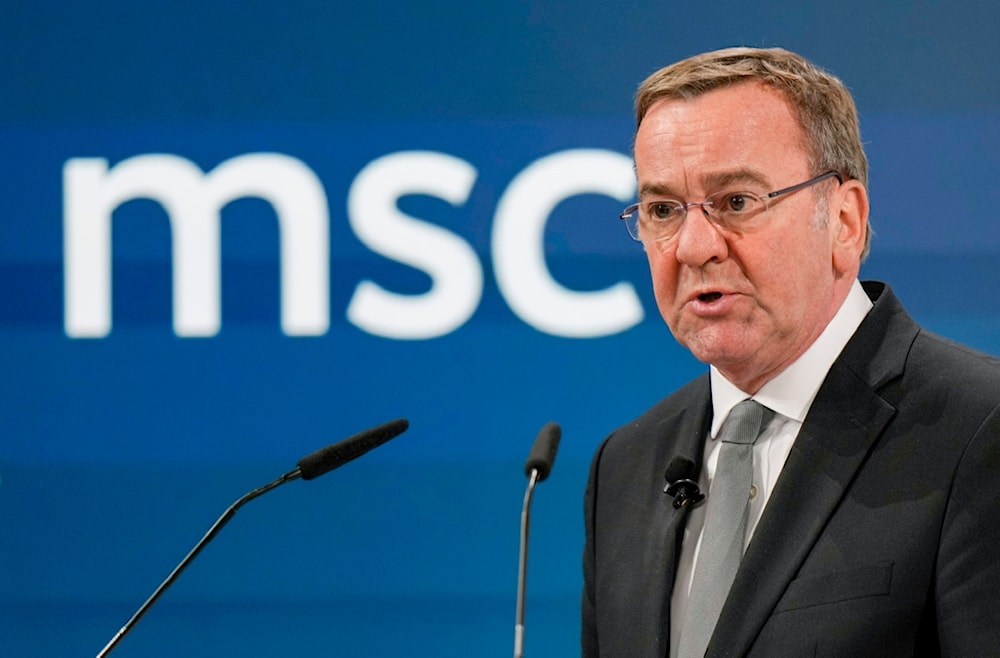Bundeswehr requires €6.5Bln beyond 2025 budget: Defense Ministry
A month ago, Pistorius warned the government of a 4.5 billion to 6 billion euros deficit in the army's budget for 2025, the Bild reported.
-

German Defense Minister Boris Pistorius speaks at the Munich Security Conference at the Bayerischer Hof Hotel in Munich, Germany, Saturday, Feb. 17, 2024 (AP Photo/Matthias Schrader)
At a press conference on Thursday, German Defense Minister Boris Pistorius stated that the German armed forces (Bundeswehr) require an additional 6.5 billion euros ($7.1 billion) beyond the allocated budget for 2025.
"It is no secret, this figure has been called: we need about 6.5 billion euros more next year," Pistorius said.
Read more: Canada, UK, France, Germany, US have mercenaries fighting in Ukraine
In June 2022, the German parliament supported Chancellor Olaf Scholz's proposal to establish a dedicated fund of 100 billion euros for the Bundeswehr.
The initiative was meant to position the German army as the largest regular army in Europe following a modernization effort.
However, the government failed to meet its goals due to an economic downturn and financial obligations toward Ukraine and other international commitments.
In March, Pistorius warned the government of a 4.5 billion to 6 billion euros deficit in the army's budget for 2025, the Bild reported.
Read more: Use of Taurus missiles means 'declaring of war' on Russia: Wagenknecht
On Tuesday, NATO chief Jens Stoltenberg proposed establishing a $100 billion Ukraine aid fund with contributions from the allies over the next five years.
The plan still requires approval from the 32 member states. If endorsed, the fund would signal NATO's inclination towards involvement in the Ukrainian conflict, a step it has previously avoided to prevent escalation into a war with Russia, the report says.
The report added that allies are discussing various accounting modalities, including whether bilateral contributions to Ukraine will be factored in.
The plan is due to be presented for signing at the NATO summit in Washington in July. Stoltenberg will also suggest that the alliance assume the operational responsibilities of the Ukraine Defense Contact Group from the US.
This proposal aims to ensure ongoing coordination of arms deliveries to Kiev, particularly in the event of a victory by NATO-skeptic Donald Trump in the US presidential race in November.

 2 Min Read
2 Min Read









